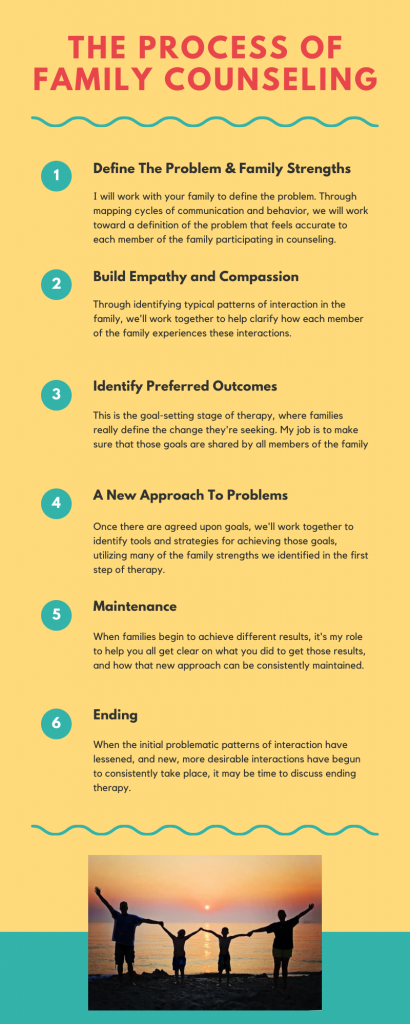Family Counseling in Portland, Oregon
Bio: I’m Nate Wilson-Traisman, a licensed Marriage and Family Therapist in Portland, Oregon. I grew up in Oregon, went to University of Oregon for graduate school, and have been a practicing therapist in Portland since 2014. I’ve been involved in the local baseball community for six years, have worked in college admissions at Portland area colleges, and am an avid outdoors enthusiast!
Why Seek Family Therapy?
The Family Counseling that I offer in Portland, Oregon is based on one truth: families, by nature, are always changing. Kids grow older and move through different stages of development. Parents change careers, and relationships between family members grow and shift. The majority of these changes happen subtly over time.
Drawing on the foundations of Family Systems Therapy, I believe families are naturally resilient, and tend to adapt to small changes within the overall family system.
However, sooner or later big changes will show up in your family. When this happens, your family will need to develop new skills and ways of relating in order to successfully work through those changes. For example, as your child becomes an adolescent, they’ll require an entirely different approach to being parented. If parents don’t adapt, things can get clunky!
Conversely, if it’s not clear a new approach to parenting is needed, you might mistake normal developmental as problems. Family Therapy can help your family see those normal developmental changes/needs more clearly, which helps build empathy and compassion!
At a fundamental level, people seek family counseling because they need a bit of support adjusting to change in the family system. That change may look very different in every family. That’s why I adapt my methods to each family, because every problem is unique.
Sometimes normal, childhood development is the catalyst for that change. In other cases it’s divorce (the percentage of children living in a two-parent household is at its lowest in half a century), academic issues, challenges with drugs and alcohol, anxiety, depression, issues related to sex or pornography, or conflict between family members. There are a host of reasons that may require families to change the ways they operate, and that change can be really difficult! Here’s why working with a trained family therapist can help.
Many Families Need Outside Help from a Family Therapist to Better Function
A well-trained therapist can help families see their patterns of interaction through a new lens. We all view the world through our own experiences. Sometimes (and especially in families), we get stuck in that experience, and feel like we’re playing the same role over and over again. When this happens, communication suffers. This is why it can sometimes be hard for families to change – each person can get stuck in their own way of viewing things, and so behavior stays the same (think dreaded holiday dinner table conversation that always causes everyone to behave in old, familiar ways).
Through the process of family counseling, you can gain new perspectives on family interactions, can better understand the needs of your family members, and can develop new tools for relating to one another.
It is really normal for families to encounter speed bumps over the years. Change is constant in families, and sometimes those changes feel really big and confusing! A little bit of outside help can go a long way toward helping families adapt to those changes.
My Approach to Portland Family Counseling
My unique experiences as a coach, academic support specialist, and college admissions worker have allowed me to work with teens and families in a variety of settings. My client-centered approach allows me to connect with teens, while empowering parents to shift their approach to better meet their child’s unique developmental needs.
I believe that more often than not, families already possess the tools necessary for change, they just need some help identifying those tools in the midst of life’s stressors. With that in mind, I take a strengths-based, systemic approach to family counseling.
I work to help families identify ways they’ve worked through challenges in the past, so that we might utilize those past strengths to fix the problem. My family systems approach is grounded in theory, and has been demonstrated to help with a variety of presenting issues.
I also work to help families better understand their patterns of interaction. When your family is aware of the patterns that occur, you can take action to change those patterns.
Finally, I work to help parents understand the typical developmental needs of their children, so that parenting strategies can be tailored to a child or adolescent’s developmental needs. A child may need completely different things from his parents at age 16 than he did at age 15. Again, normal developmental changes are often misinterpreted as problems, which can impact families negatively.
For Example:
Let’s imagine there’s a family with two parents, and two kids, aged 13 and 11. The 13 and 11-year old used to hang out all the time. Until recently, the family did lots of activities together, had game nights, and generally got along well. However over the past several months, the family has noticed that the 13-year old is less interested in hanging out with his sibling, complains on family game night, “always wants to hangout with his friends,” and spends more and more time in his room.
The parents and the 11-year old are sick of the 13-year old “being cranky all the time.” They feel like he’s “always in a bad mood, and never wants to spend time with us anymore.” The 11-year old is hurt because her brother doesn’t want to hang out with her like he used to. And the 13-year old is feeling frustrated, confused, and blamed for everything. He doesn’t know why he gets annoyed with his parents more frequently, he just does, and it’s not that he doesn’t love his family, he just really cares about friends at this stage in his life.
In this brief, but typical example, we see many ways that families can get stuck. The parents may blame their 13-year old for the change in family interaction. The 11-year old may feel rejected, and the 13-year old may feel completely misunderstood. Family counseling could help normalize the changes this family is experiencing in a number of ways:
– Therapy could normalize the 13-year old’s behavior as a part of developing from child to adolescent, a developmental phase marked by increased need for autonomy, independence, and peer connection.
– The 11-year old may feel empowered to articulate feelings of relationship loss/hurt
– The 13-year old could learn to better express his needs within the family
– Therapy could help the family devise new ways to connect and interact that are a better fit for each child’s developmental stage
– Through counseling, the family could achieve a better understanding of what each member is feeling/experiencing, improving empathy in the family.
– The parents could use counseling to prepare for the changes of adolescence, by adapting their parenting strategies to better meet the developmental needs of their children.
Any of these interventions would help the family step out of their current pattern of interaction, and create the possibility for new, preferred patterns to emerge!
My Portland Office – Issues I Treat
My office is located in East Portland at 2304 E Burnside. I’m close to Central Catholic, Grant, Benson, Franklin, and Cleveland high schools, as well as several area middle schools. I have lived and worked in East Portland for years, and have strong connections to schools across the city. I also coached baseball for five years at Lewis and Clark College, and continue to coach in the Portland community.
I have extensive experience working with many presenting issues for families. I commonly work with families around screen-time issues, school-related issues, anxiety, and drug-related issues. I often work with parents to help them tailor their parenting approach to the adolescent developmental phase. For a full list of issues I treat, click here: https://portlandoregontherapy.com/nate-right-therapist/help-for-parents/
FAQ about Family Counseling
Won’t being in therapy with the whole family be a bit awkward?
Family counseling is sometimes uncomfortable, but my approach is designed to make you feel safe, comfortable, and heard. Sometimes discussing family problems with a third party can feel quite validating!
Will we always all be in the room at the same time?
No. Families can come to therapy in a variety of combinations. Sometimes family therapy happens with just parents, one parent and one child, with siblings, or with everyone all together. Sometimes I’ll meet with family members individually to better understand their perspective.
If we don’t always meet as a whole family, then why is it called Family Therapy?
Effective Family Therapists take a “family systems” approach, meaning we believe that in order for change to occur, the entire family system will need to operate differently. If one individual works really hard to change, but spends every day in the same family system that continues to behave in the same way, it’s going to be really hard for that individual to change! Family Therapy is about working toward systemic change. Sometimes that happens with the whole family, but it can also happen by working with subsystems (think parents, parent/child, siblings).
How will we know who should be involved in Family Counseling?
After making an initial phone call, or meeting for an initial consultation, I will make recommendations on who should be involved in family therapy. I’ll also give suggestions when it seems beneficial to meet in various subsystems (parent-only session, individual session with teen, etc.) Often, the answer to this question evolves over time and is based on your family’s specific treatment goals.
How long does Family Therapy last?
Some families just need a few sessions, and then they’re on their way. Other families might find that they benefit from the consistent outside support of a therapist. And sometimes, families access therapy at different points over time, as life stressors and big transitions come and go. There is no protocol for how long family therapy must last. It’s all about your family’s specific needs and goals!
Let’s Get Started!
Call me, or fill out my contact form to schedule your free, 30-minute consultation!
Or, sign-up for my newsletter to receive tips and tools for both parents, and kids.



